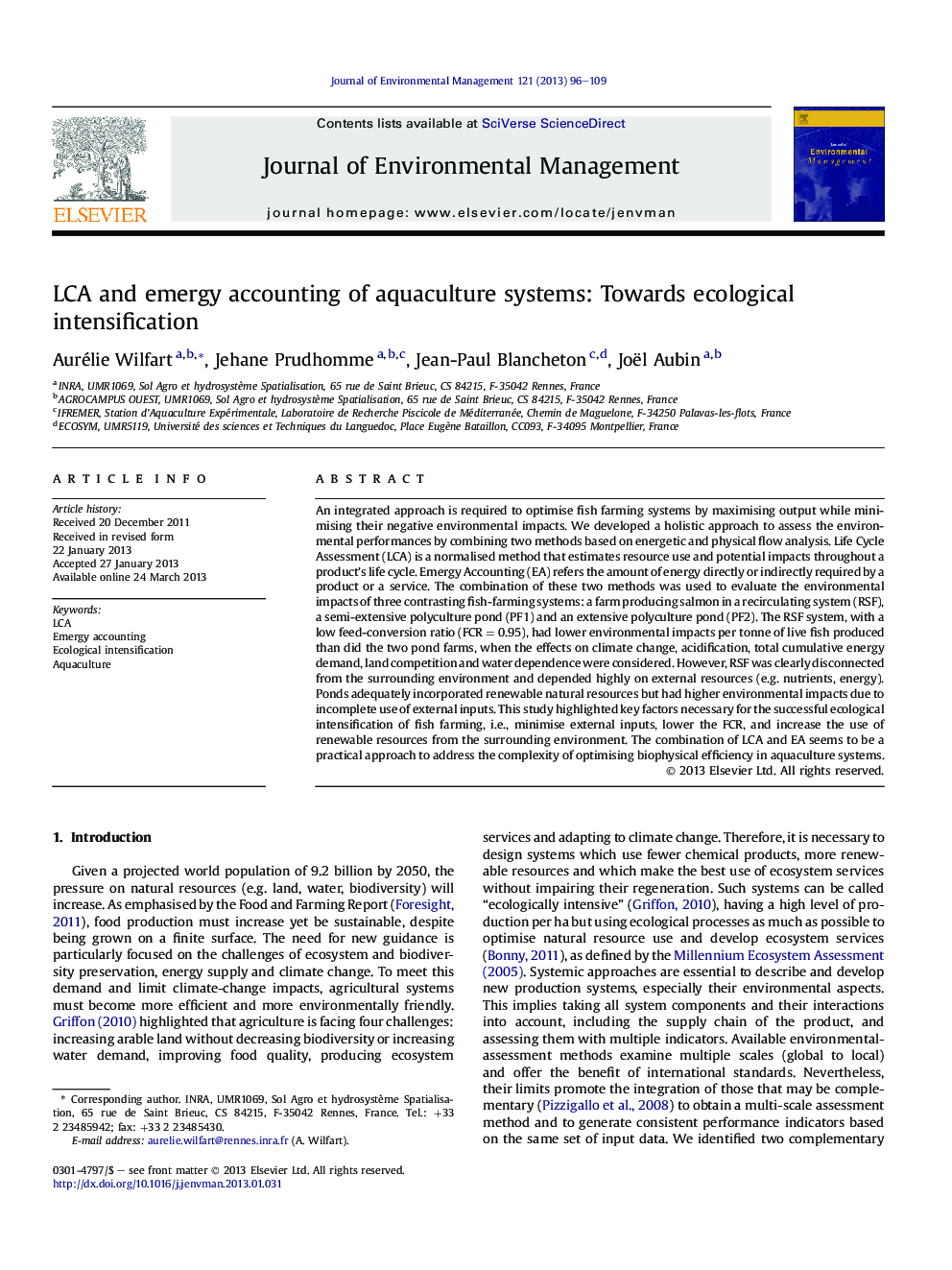| Article ID | Journal | Published Year | Pages | File Type |
|---|---|---|---|---|
| 1056359 | Journal of Environmental Management | 2013 | 14 Pages |
An integrated approach is required to optimise fish farming systems by maximising output while minimising their negative environmental impacts. We developed a holistic approach to assess the environmental performances by combining two methods based on energetic and physical flow analysis. Life Cycle Assessment (LCA) is a normalised method that estimates resource use and potential impacts throughout a product's life cycle. Emergy Accounting (EA) refers the amount of energy directly or indirectly required by a product or a service. The combination of these two methods was used to evaluate the environmental impacts of three contrasting fish-farming systems: a farm producing salmon in a recirculating system (RSF), a semi-extensive polyculture pond (PF1) and an extensive polyculture pond (PF2). The RSF system, with a low feed-conversion ratio (FCR = 0.95), had lower environmental impacts per tonne of live fish produced than did the two pond farms, when the effects on climate change, acidification, total cumulative energy demand, land competition and water dependence were considered. However, RSF was clearly disconnected from the surrounding environment and depended highly on external resources (e.g. nutrients, energy). Ponds adequately incorporated renewable natural resources but had higher environmental impacts due to incomplete use of external inputs. This study highlighted key factors necessary for the successful ecological intensification of fish farming, i.e., minimise external inputs, lower the FCR, and increase the use of renewable resources from the surrounding environment. The combination of LCA and EA seems to be a practical approach to address the complexity of optimising biophysical efficiency in aquaculture systems.
► With LCA, recirculating system had lower impacts than extensive pond fish-farms. ► EA showed that recirculating systems are highly dependant on external resources. ► Pond systems are efficient to use renewable natural resources but with higher impacts. ► Combining LCA and EA spot ways for ecological intensification of aquaculture systems.
